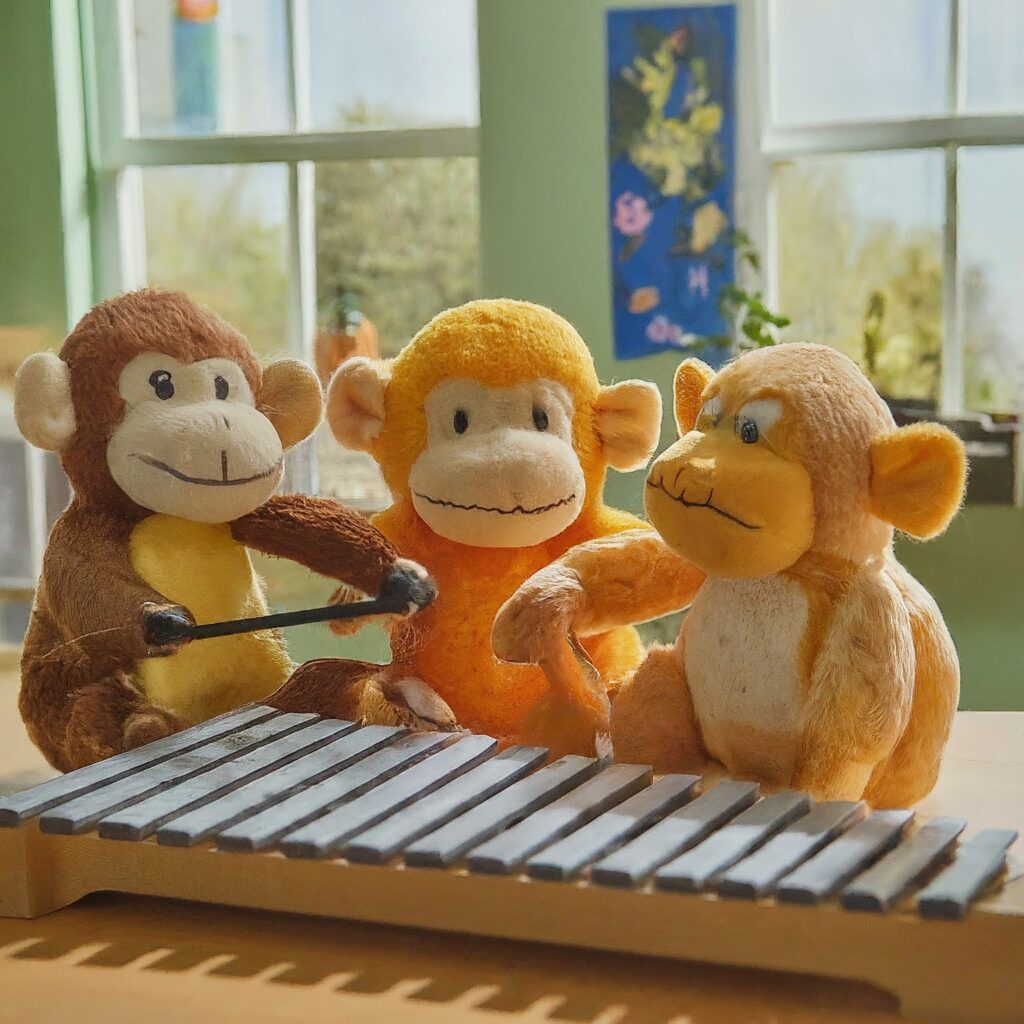
Music has a magical way of capturing the hearts and minds of children, igniting their imagination, and fostering their development in profound ways. At Monkey Ville Childcare, we recognize the power of music as a valuable tool for early childhood development, and we are passionate about incorporating music activities into our curriculum. In this blog post, we’ll explore the role of music in early childhood development at Monkey Ville Childcare and highlight how music activities and exposure to different rhythms and sounds stimulate children’s cognitive and emotional growth.
The Role of Music in Early Childhood Development:
- Cognitive Development: Music engages multiple areas of the brain and supports cognitive development in young children. Listening to music, singing songs, and participating in musical activities help children develop auditory discrimination, memory, and sequencing skills. Playing musical instruments also enhances fine motor skills and hand-eye coordination.
- Language Development: Music provides a rich context for language development, as children learn new vocabulary, sentence structure, and phonological awareness through song lyrics and verbal communication during musical activities. Singing songs, chanting rhymes, and listening to stories set to music promote language acquisition and communication skills.
- Emotional Expression: Music has the power to evoke a wide range of emotions and allows children to express themselves in meaningful ways. Singing, dancing, and playing musical instruments provide opportunities for children to explore and express their feelings, build self-confidence, and develop emotional regulation skills.
- Social Interaction: Music brings people together and fosters social interaction and collaboration. Participating in group music activities, such as singing in a choir or playing in a band, teaches children the importance of cooperation, teamwork, and mutual respect. Music also creates a sense of community and belonging among children, strengthening social bonds and friendships.
Exploring Sound and Rhythm at Monkey Ville Childcare:
- Music and Movement: We incorporate music and movement activities into our daily routines to promote physical activity, coordination, and gross motor skills. Children have the opportunity to dance, clap, stomp, and move their bodies to the rhythm of different musical styles and genres.
- Instrument Exploration: We provide a variety of musical instruments for children to explore, including drums, shakers, xylophones, and tambourines. Through hands-on exploration, children learn about different sounds, rhythms, and musical concepts such as tempo, pitch, and dynamics.
- Sensory Play: Music engages the senses and stimulates sensory exploration in young children. We create sensory-rich environments where children can experiment with musical instruments, feel different textures and materials, and explore the sensory aspects of sound, rhythm, and vibration.
- Creative Expression: We encourage children to express themselves creatively through music by providing opportunities for improvisation, composition, and storytelling through music. Children can create their own songs, rhythms, and musical compositions, fostering creativity, imagination, and self-expression.
Conclusion:
At Monkey Ville Childcare, we believe in the transformative power of music to enrich the lives of young children and support their holistic development. By incorporating music activities and exposure to different rhythms and sounds into our curriculum, we provide children with a foundation for lifelong appreciation and enjoyment of music, as well as opportunities for cognitive, emotional, and social growth. Together, let’s embrace the magic of music and explore the world of sound and rhythm at Monkey Ville Childcare.
